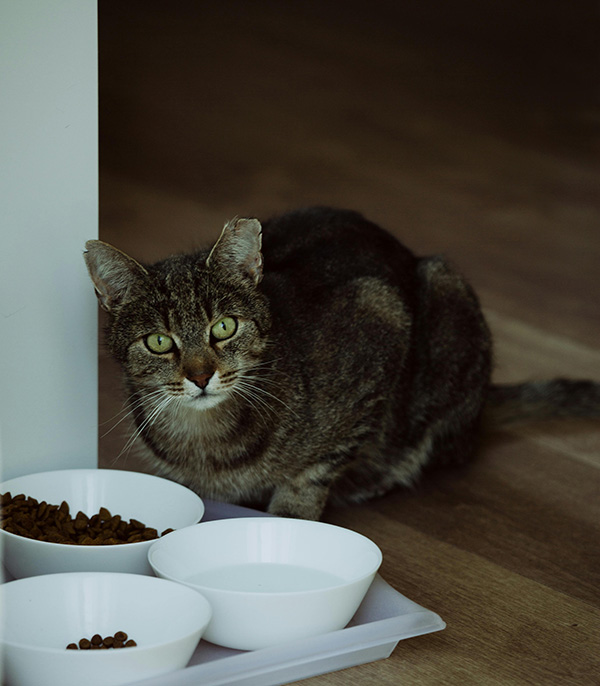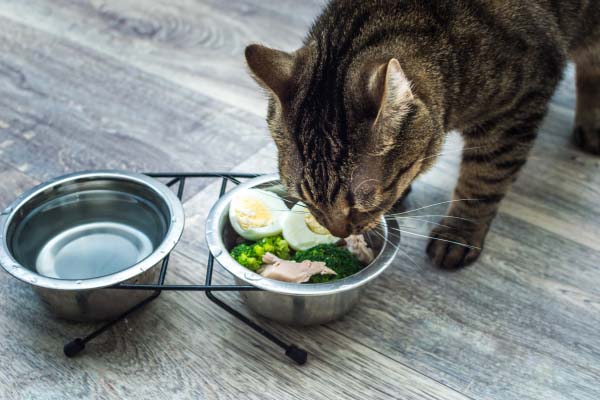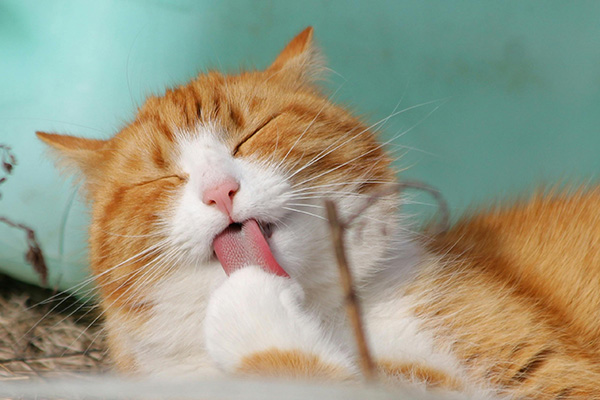Have you ever wondered what you can feed your cat to get that lustrous, shiny coat everyone admires? A cat's shiny coat is more than just a cosmetic feature; it is often an indicator of your cat's overall health and well-being. Focusing on proper nutrition can enhance your cat's coat while promoting their health internally. Below, I will provide dietary tips and key elements to keep your cat’s coat shiny.
What to Feed Your Cat for a Shiny Coat

High-Quality Protein
Since cats are obligate carnivores, they rely on animal-based proteins as the mainstay of their diet. High-quality protein sources such as chicken, turkey, and fish supply essential amino acids that support hair growth and repair, contributing to a healthy coat. Protein supports every cell in a cat’s body, and a deficiency can lead to a cat's dull coat and even fur loss. Look for cat foods labeled with named protein sources (like “chicken” or “salmon”) rather than ambiguous terms like “meat by-products,” as these provide the essential building blocks for a glossy coat.
Omega-3 and Omega-6 Fatty Acids
These fatty acids play a vital role in keeping the coat healthy. Omega-3s (found in fish oils, flaxseed, and certain high-quality cat foods) have anti-inflammatory properties that can soothe itchy, dry skin and reduce shedding. Omega-6 fatty acids, sourced from chicken fat, corn oil, and safflower oil, are equally important as they help maintain the integrity of the skin’s barrier, keeping it hydrated and reducing dandruff. Together, these fatty acids prevent a dry, flaky coat and add shine to your cat’s fur, making it softer and more vibrant.
Biotin and B Vitamins
B vitamins are essential for a healthy metabolism, cell regeneration, and skin hydration. Biotin (a B vitamin) is particularly beneficial for coat health, as it supports keratin production, a protein that strengthens hair and nails. B vitamins also improve cats' skin elasticity and moisture retention, which reduce flakiness and dandruff. A good-quality cat food typically contains all the B vitamins cats need, but if your cat has skin or coat issues, your vet may recommend a biotin supplement to promote a shinier coat and healthier skin.
Taurine
Taurine is a vital amino acid that cats cannot produce on their own, making it necessary to include it in their diet. Adequate taurine levels support cardiovascular and eye health and healthy skin and coat. Taurine is found naturally in animal tissues, so high-quality cat foods include it in a balanced formula. Ensuring your cat gets enough taurine can contribute to a vibrant coat while also supporting overall health.
Hydration
Proper hydration is essential for maintaining healthy skin and a shiny coat. Since cats often don’t consume enough water, offering moisture-rich foods can be beneficial. Wet cat food has a high water content that supports skin hydration and keeps fur glossy. For cats that mainly eat dry food, you can encourage better hydration by ensuring a daily supply of fresh water or using a cat water fountain, which many cats find appealing. Staying hydrated helps maintain skin elasticity and moisture, reduce dryness, and contribute to a vibrant, healthy coat.
Eggs and Small Portions of Meat

Eggs are packed with protein, healthy fats, and biotin, all contributing to coat health. Scrambled eggs (plain, without salt or butter) or small amounts of cooked meat, like chicken or turkey, make excellent occasional treats that provide additional nutrients for coat shine. These treats also contain amino acids and fatty acids that reinforce coat health, though they should be given in moderation to avoid upsetting the balance of a nutritionally complete diet.
Use Coconut Oil Sparingly
Adding coconut oil to your cat’s diet or grooming routine can help enhance their coat's shine and overall health. Coconut oil is rich in medium-chain fatty acids (MCFAs), such as lauric acid, which is recognized for its hydrating and antimicrobial benefits. This oil helps keep the skin hydrated and can prevent dryness, which often causes a dull or flaky coat. When either applied topically or included in the diet, coconut oil can improve skin moisture, reduce dandruff, and make the coat smoother and shinier.
Additionally, coconut oil’s anti-inflammatory properties can soothe itchy or irritated skin. If your cat experiences dry skin or allergies, a small amount of coconut oil in their diet or gently massaged into the cat's fur may help reduce redness and irritation, leading to a healthier-looking coat. The lauric acid in coconut oil also nourishes the skin and strengthens hair follicles, promoting stronger hair growth, which may reduce shedding and improve coat texture, leaving it fuller and glossier.
Selecting the High-Quality Cat Food
When selecting the right cat food for a shiny coat, it’s important to consider the type of food you choose— wet, dry, or homemade. Each has unique benefits and considerations, especially for promoting skin and coat health.
Wet Food is a great choice for supporting a shiny coat, primarily due to its high moisture content. Since cats frequently don’t drink enough water, wet food can help keep them hydrated, supporting healthier skin and a softer, shinier coat. Wet food typically has fewer fillers than dry food and often contains a higher percentage of animal-based protein, essential for coat health. Choose wet food that specifies protein sources, such as "chicken" or "salmon," and incorporate omega-3 and omega-6 fatty acids from options like fish oil. These fatty acids support skin hydration and help minimize shedding. Wet food also tends to be more palatable, which can benefit picky eaters, but it may require refrigeration and be more costly over time.
Dry food has the advantage of being convenient and long-lasting, and high-quality dry foods that support coat health are available. However, dry food generally has lower moisture content, so it’s essential to ensure your cat is drinking enough water if they’re on a primarily dry diet. Some premium dry foods are formulated with ingredients like fish oil, chicken fat, and flaxseed oil, which supply the essential fatty acids needed for a glossy coat. Quality dry foods may also contain added vitamins like biotin, vitamin E, and B vitamins to support skin health. When choosing dry food, look for high-protein formulas with a named protein source as the first ingredient and minimal fillers to avoid unnecessary additives that can dull the coat. Combining dry and wet food can provide balanced hydration and add variety to your cat's diet.
Homemade food can be an excellent option for coat health, as it allows you full control over ingredients and ensures your cat gets fresh, high-quality nutrients. Homemade diets can especially benefit cats with allergies or sensitivities to certain commercial food ingredients. Including lean meats, fish, and eggs in your cat’s homemade diet provides protein, healthy fats, and biotin—all of which are essential for a shiny coat. Adding omega-3 and omega-6 fatty acids from fish oil or flaxseed oil helps keep the skin hydrated and reduces inflammation. Homemade diets require careful planning to ensure they are nutritionally balanced and prevent any deficiencies. Consulting a veterinarian or a pet nutritionist is essential when creating a homemade diet, as they can guide you on supplements like taurine, vitamins, and minerals that may be missing from a homemade plan.
Other Tips To Give Cat Shiny Coat

Regular Grooming
Grooming is essential for helping your cat maintain shiny fur. Regular brushing and other grooming practices help distribute natural skin oils, remove dead hair, and prevent matting, all of which contribute to a smoother, more lustrous coat.
First, brushing your cat’s fur encourages the distribution of natural oils their skin produces. These oils are essential for keeping the fur soft, moisturized, and shiny. When you brush your cat, you help spread these oils evenly across the coat, making it look healthier and more vibrant. Brushing helps eliminate dirt, debris, and loose hair, preventing dullness and matting that can occur if left unattended.
Regular grooming helps reduce shedding and prevents hairballs, which can cause discomfort for your cat. Brushing away loose fur limits the amount of hair your cat ingests while grooming. This reduces the occurrence of hairballs and keeps their digestive system healthy, indirectly supporting overall coat health. Removing loose hair also prevents it from tangling with other fur, avoiding painful mats that can pull on your cat’s skin and lead to irritation.
Brushing also promotes blood circulation in your cat’s skin, supporting healthy hair growth. Better circulation ensures hair follicles receive the nutrients they need, making the fur stronger and shinier. Regular grooming allows you to check for skin issues, parasites, or irregularities, helping you address potential concerns early and maintain healthy skin.
Control Fleas and Parasites
Fleas, ticks, and other parasites can cause major discomfort for cats and directly impact their coat’s appearance and health. Cats with fleas or other parasites often scratch and groom excessively, leading to hair loss, dull fur, and irritated skin. Scratching also damages the skin’s surface, leading to flaky patches or sores, which further dull the coat. Flea bites and flea dirt (flea droppings) can accumulate on the skin, contributing to a grimy appearance and irritation.
To avoid this, it's important to use flea prevention products recommended by your veterinarian, such as spot-on treatments, flea collars, or oral medications. When used regularly, these treatments effectively kill fleas and other parasites and prevent infestations. Regular grooming and brushing also help spot any signs of parasites early, allowing prompt treatment.
Bathe Only When Necessary
Cats are naturally fastidious animals, grooming themselves frequently to stay clean. Over-bathing can actually strip away the natural oils in your feline friend's coat, which are essential for moisture and shine. Without these oils, the coat can become dry, brittle, and dull, while the skin may develop irritation or dryness. When a bath is necessary, such as if your cat gets into something sticky, muddy, or potentially harmful, use a gentle, cat-safe shampoo specifically designed to maintain skin and coat health.
Make sure to rinse thoroughly, as leftover residue can irritate the skin and cause the fur to lose its shine. Limit baths to rare occasions, and avoid using human shampoo or products not intended for cats, as they can upset the natural pH balance of your cat’s skin and cause irritation. If your cat is older or unable to groom itself effectively, occasional, gentle bathing may be beneficial, but it should still be done sparingly.
